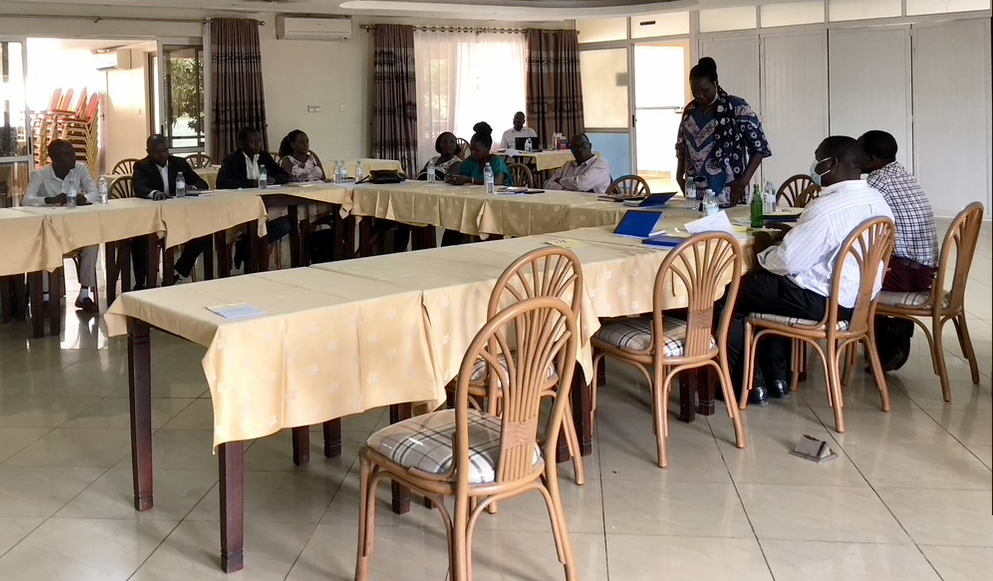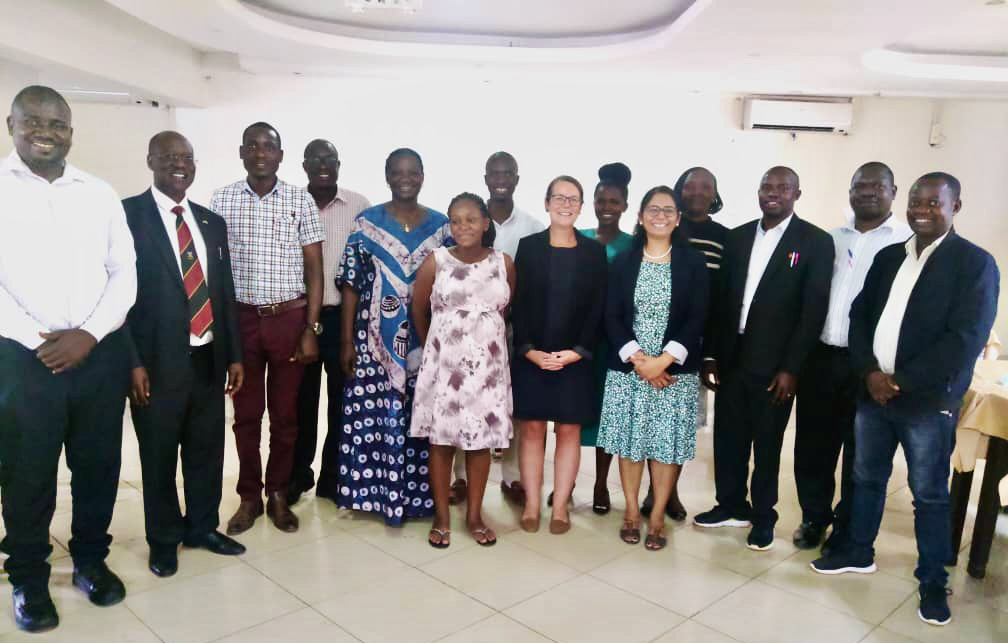
By Manjula Marella for ReLAB-HS
Rehabilitation stakeholders from Gulu, Uganda recently shared their expertise and developed a local consensus on what’s needed to integrate rehabilitation into PHC in the Acholi sub-region at a recent workshop facilitated by Learning, Acting and Building for Rehabilitation in Health Systems (ReLAB-HS).
Eleven participants from local government, the regional referral hospital, allied health professionals, and local organizations for persons with disabilities discussed what their vision for integration in the Ugandan context, how lower-level health care facilities could play a role in the provision of rehabilitation services, and what is needed to facilitate this.
The one-day workshop was facilitated by the ReLAB-HS Uganda team with support from the Makerere University School of Public Health and the Nossal Institute for Global Health, University of Melbourne. Manjula Marella and Fleur Smith, senior technical advisors from the University of Melbourne started the event by sharing how the World Health Organization (WHO) has identified integration of rehabilitation into a country’s primary health care system as a priority to ensure people who need rehabilitation can receive the care they need when they need it.
 Participants of a one-day ReLAB-HS workshop on what is required to integrate rehabilitation services into primary health care in the Acholi sub-region pose for a group photo. Photo by Peter Simon Okello
Participants of a one-day ReLAB-HS workshop on what is required to integrate rehabilitation services into primary health care in the Acholi sub-region pose for a group photo. Photo by Peter Simon Okello
Integrating rehabilitation with other health services can improve how people move from primary care to other forms of care, through early identification of rehabilitation needs, onward referrals, and provision of follow-up services close to communities. However, while there is growing recognition of the need to integrate rehabilitation into primary health care, there is limited practical guidance and evidence about how integrating rehabilitation services can be achieved. Rehabilitation services and health systems vary in each context, so models need to be sensitive to context.
When asked about why an integration strategy was important at a primary health care level, participants said it would increase the health and functional outcomes of those in need by bringing services closer to their communities. They also indicated it would help with early identification and timely referrals of those who need rehabilitation in the communities when service providers are trained at primary health care level.
The ideas generated in the workshop were grouped into five thematic areas: rehabilitation and AT service provision, capacity building for rehabilitation service providers, policy and financing, data and data management systems, and client empowerment.
Participants voted on which actions to prioritize from each theme.
The top priority areas for action agreed upon by stakeholders were to:
These priority areas align with ReLAB-HS’s broad efforts to strengthen health systems for rehabilitation and AT and reflect a collaborative, inclusive approach that is necessary for meaningful changes to begin to take effect.
This workshop provided local stakeholders the opportunity to equitably contribute their ideas on feasible ways current challenges surrounding rehabilitation and AT services can be addressed. It is encouraging to see rehabilitation stakeholders, with sometimes competing priorities, working together to identify concrete actions that have promised to bring them incrementally closer to long-term solutions. This workshop is one of the four workshops planned in the Northern and Eastern regions of Uganda.
Recommendations from these workshops will help prioritize implementation plans for integrating rehabilitation into health systems and contribute to ReLAB-HS’s own activities.
ReLAB-HS is made possible by the generous support of the American people through the United States Agency for International Development